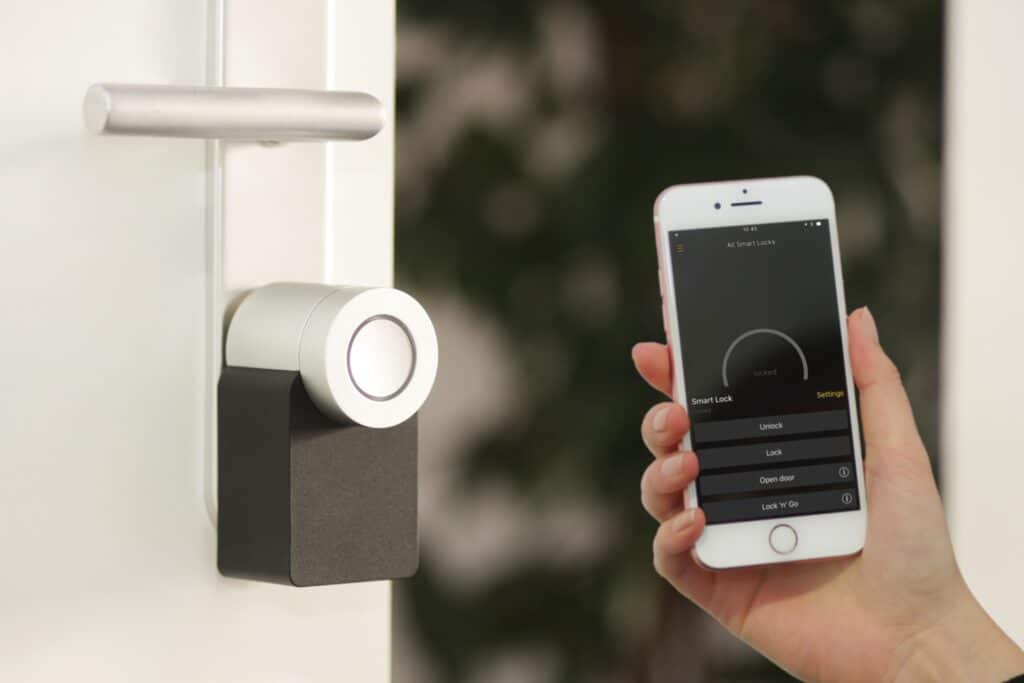
Smart Home – a love-hate relationship?
Innovation
Posted 10 Sep 2019
The smart home is booming. What was shown at exhibitions like IFA years ago is gradually finding its way into German households. Many movies already showed us applications such as self-cooking kitchen appliances, video surveillance systems, voice-controlled robot butlers and postal deliveries by airplane. At the time when these products were seen on the screen, it was all still a dream of the future. Today, the technologies in the smart home sector are versatile, and yes, we already have connected kitchen appliances, video surveillance systems and even mail deliveries by drones are possible. In addition, there are music and lighting systems, smart door locks, all controlled by smartphones, and many other technological achievements. Sounds a lot like “Back to the future”, but it’s really “Welcome to the now.” Smart home is a huge business.
Statista has investigated the smart home market in Germany more closely and found interesting facts: In 2019, sales in this market amount to around $4,046m. In a worldwide comparison, this means fourth place, behind the USA, leading with $27,747m, but a place ahead of Britain. China and Japan are behind the USA. The market in Germany has grown by 28.7 percent compared to the previous year. The forecast also shows a market volume of $7,875m in 2023. Smart household devices have been generating the largest turnover in Germany for several years. This will remain the case in the near future. The potential is also shown by the large number of start-ups that are making headlines with new solutions. They are competing with the established leaders for innovations and market shares.
Many of the smart home applications mentioned above are already extensively used by their owners. According to Splendid Research, almost every second citizen in Germany owns smart home devices. However, the survey also shows that most people are not yet making the most of this potential. Many individual applications are used. Germans most often buy smart home devices in order to be entertained or to communicate more easily. This is followed by devices and applications for energy management, such as smart light sources. Very few combine all their applications into a complete and connected system. Although this is where the real potential of smart homes lies. Only 12 percent really exploit this potential. The study shows that they are rather young, male and enthusiastic about technology and have an above-average education and income.
What are the reasons why users are not aware of the potential of this connectivity? According to the survey, the reasons for this are high prices, concern for privacy and fear of hacker attacks. On the other hand, security is also cited as one of the reasons why customers use smart home devices. Comfort and fun are also mentioned. They are supposed to make life easier for users. We rely on technology that is becoming more intelligent and can undertake many tasks at work and in everyday life.
As mentioned before, security and privacy concerns slow down a possible stronger growth in the smart home industry. Often we hear about hacked devices or how employees listened to, transcribed and evaluated voice instructions of Alexa and Co. Of course, people are more skeptical towards foreign companies. Where does my data go? Do the manufacturers of my surveillance camera know everything about the furnishing, structure and size of my house? Why are my conversations with speech assistants monitored? However, this also applies to the smartphone – but would we like to live without it? Probably not. In this way, the smart home makes our lives a lot easier.
Can we even imagine a life without these technical helpers? Some of us would possibly answer with yes, but reality is usually quite different. They have become an integral part of our day. Our lives have changed a lot by the use of technology and smart home devices. This is unlikely to change in the future if we look at the predicted growth of development in this area. It is exciting to see what opportunities there will be in the future. New gadgets and technologies are launched almost daily. The (IoT) platforms behind the smart home are also constantly evolving. Especially in connection with artificial intelligence, a lot will happen in the upcoming years – much more than we can imagine.

Arthur Ryschka
Account Manager at HBI Helga Bailey GmbH – International PR & MarCom
Arthur Ryschka is responsible for various B2C and B2B customers at HBI since 2016. He is specialized in social media and text creation.